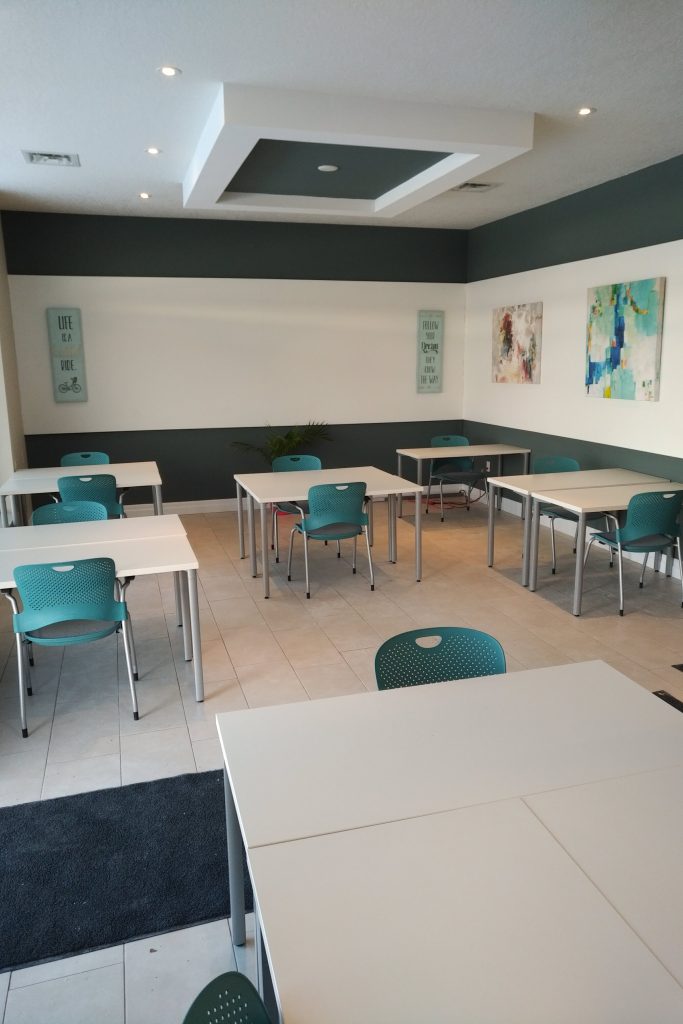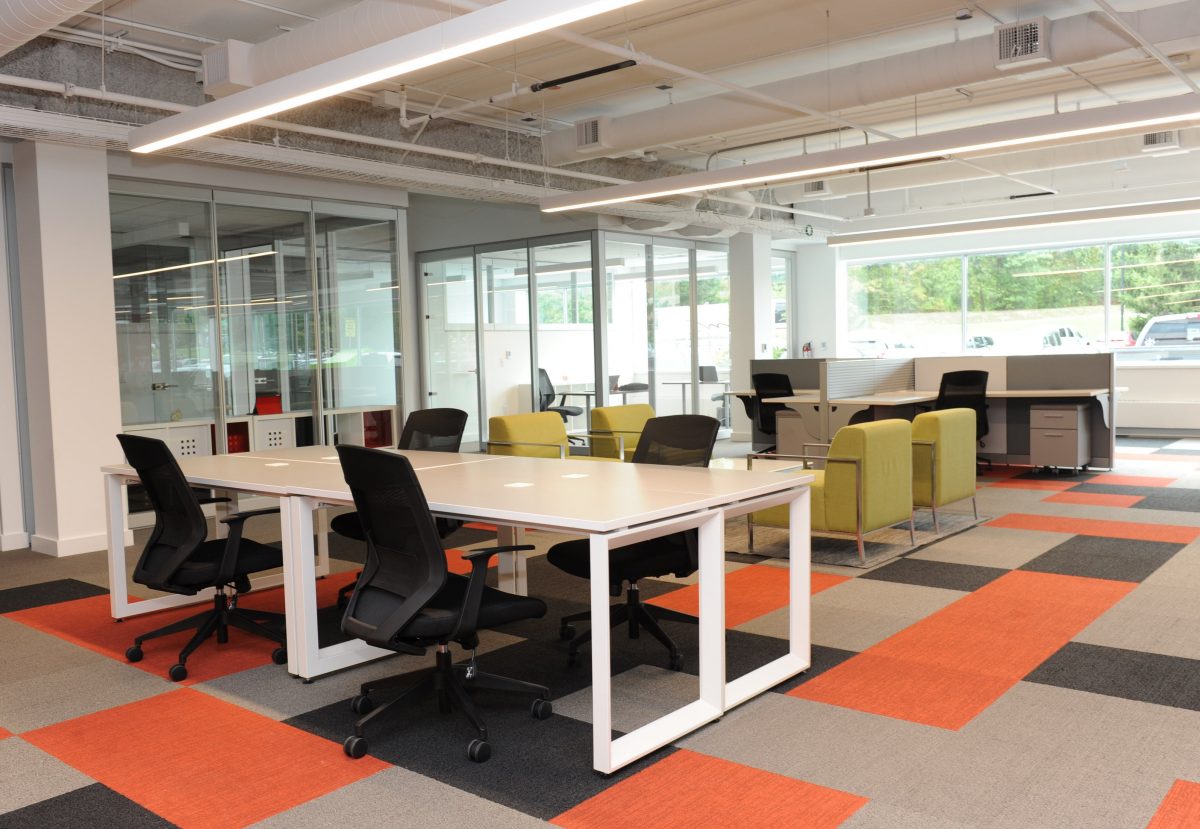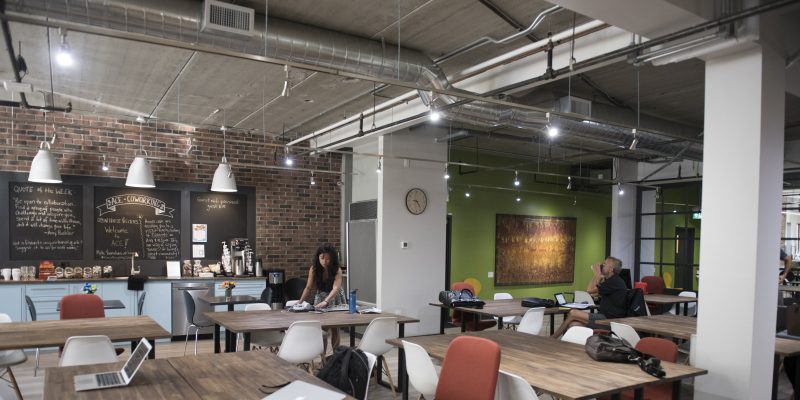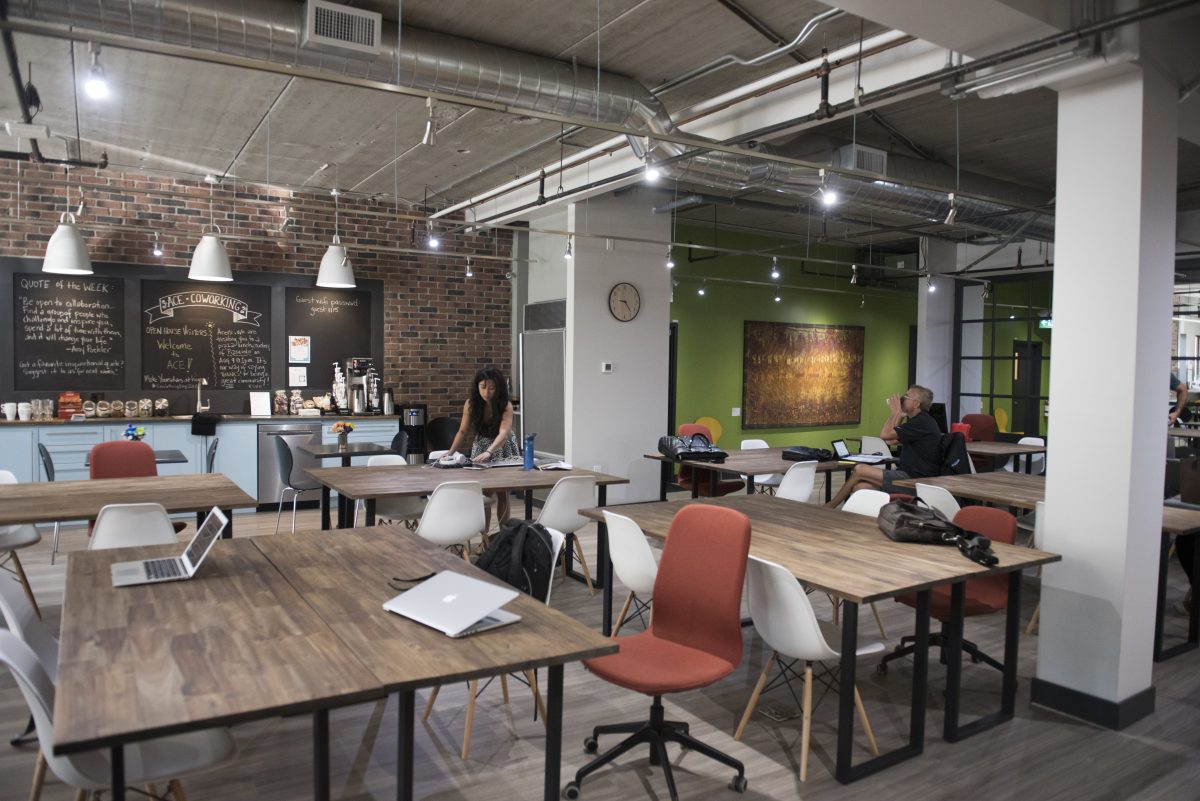By Kelly Putter
Coworking is quickly becoming an integral part of business landscapes in small towns and suburbs as workers give a big collective thumbs up to a shared work space; a place where collaboration and communication are key, where caffeine flows freely and where one hand quite often scratches the other.
As history goes, coworking is a relatively young concept that can be traced to the mid 1990s, however, its current-day incarnation is somewhat different. Coworking is an increasingly accepted style of work that brings entrepreneurs and those who work for employers together under one office space or work environment. Typically, under their shared space, they also divvy up office equipment, amenities such as free coffee, board rooms and, most importantly, ideas, knowledge and new business leads.
The Idea Room

“The Idea Room is a creative space where people can bounce ideas off of each other,” says Tyrone Matheson, co-founder and owner of the 1,500-square-foot, Waterdown-based coworking space, which opened May 2017. “I’m also a business consultant and I’ve been able to leverage clients here for my business. Working out of a shared space means you invariably get to know each other’s business. Trust and relationships begin to build and the next thing you know, you’re doing business with each other. It happens all the time.”
Matheson decided to try his hand at creating a coworking space after noticing the surplus of freelancers, entrepreneurs and remote workers who were taking up space in local coffee shops. “No one was communicating with each other,” he says. “I’ve learned you accomplish things much quicker when you talk to people, ask questions and share.”
His roster of clients in a community shy of 20,000 is impressive: an attorney, a community newspaper, an architectural designer, financial planners, a software firm, real estate agents, an environmental company, web designers, a sports psychologist, graphic designers, an after-school program and others.
Gone are the days of pining after an office at corporate headquarters. Today’s workforce takes a more democratic and flexible approach to how they make a living. Technology and our desire to work outside of a nine-to-five office setting mean coworking facilities suit not just self-employed workers, but also remote employees. According to a Conference Board of Canada survey, nearly 86 per cent of Canadian organizations offer some form of flexible work arrangements, which means more of the workforce is working from home. And while some think working from home is ideal, others say it is lonely, isolating and full of distractions, so a workspace not far from home is best for some.
The number of coworking spaces around the world has exploded by 400 per cent in recent years. In 2017, there were more than 14,000 coworking spaces internationally — a number that is expected to hit 30,000 by 2022, according to the Global Coworking Unconference, which produces conferences on coworking. In four years, those coworking spaces will include over 5 million coworking members.
ACE Coworking

Harvard Business Review chronicled how coworking affects workers and it found those who work together in shared office settings prosper because they feel more in control of their jobs, find their work more meaningful and feel more connected to the wider business community.
Tom Leiper is in charge of Canadian sales for Deluxe Corporation, a Minnesota-based firm that supplies printed material, cheques and business services to banks and the small-business sector. A home-based worker for a few years, Leiper decided the time was right to invest in a work space away from home. Since January, he rents a desk three days a week at ACE Coworking, a coworking facility near Lakeshore and Trafalgar Road in Oakville.
“Even if you have an office space in your home, working from there is still challenging,” says Leiper. “With kids coming back from school and my wife not working, it’s easy to get distracted, to take extra breaks or longer lunches without even knowing it. When it comes to time management you want to stay focused. I also enjoy the rhythm of being around people and close to others in an office environment. There’s definitely an entrepreneurial element and a good energy and I feed off of that. I’m a corporate guy and do like the vibe of picking up the entrepreneurial spirit from others.”
Leiper enjoys the inner workings and amenities offered at ACE Coworking. The all-you can-drink coffee/tea service is a hit, as are the monthly complimentary happy hours and regular professional development events in which business issues are explored and experts are invited to ACE to share their expertise. The events at coworking spaces like ACE help members network, get to know one another personally, and build community spirit. A kitchen with hot and cold drinks, a rooftop patio and stylish lounges add to the appeal. Leiper is also gaining the direct benefits of working in a collaborative environment. In nine months of coworking he’s partnered three times with members on various business opportunities.
A model example of a typical coworking member, Nancy Fornasiero decided to join a coworking space last year in Toronto after a lengthy and lonely career as a work-from-home freelance writer. “I really enjoy the energy of working around people,” she explains. “At one point I almost took on a corporate job just to have colleagues.”
Instead, in January 2018, she founded ACE Coworking. Recognizing a void in the Oakville market, Fornasiero launched her shared workspace, betting that other solopreneurs like her would appreciate this alternative way to work. Her clients cover a wide and diverse collection and include those embarking on second careers, former corporate and civil service workers, digital marketers, software engineers, HR and finance professionals, writers, business coaches, technology workers and more.
At one time, coworking spaces were found only in urban areas, but increasingly they are popping up in smaller towns and suburbs. Still popular with small business owners and freelancers, small-town spaces also benefit from the multitude of remote workers living outside of the city. Corporate employees missing the camaraderie of their shared workspace at headquarters find coworking preferable to the home office. “I joke that our tag line here is, ‘Kill the commute,’” says Fornasiero. “We offer you a comfortable desk, reliable Wi-Fi, coffee, printing and, most importantly, collegiality. Why wrestle with the QEW when you can get all that right here in town?”
It’s commonly thought that the demographic most likely to engage in coworking is people under 40, but Fornasiero has dozens of members in their second chapter of life using her space. “Coworking is traditionally thought of as
something only for urban hipsters or young whiz kids working in the tech industry, but that’s not really the case anymore, especially here in Halton. Coworking has been around for a long time in larger cities, but this new way of working is only just now starting to seep into our suburbs. With the explosion of the sharing economy everywhere, I predict we’ll soon be seeing more and more coworking in small towns too.”
Matheson, meanwhile, is already eying small communities where he plans to open additional coworking spaces, though he’s understandably mum on locations.
NUVO Network

One of the area’s newest coworking sites is Burlington’s NUVO Network. Located in the former Crossroads Centre building at Brant Street and the QEW, this 150,000-square-foot space offers members three storeys of light-filled, open concept and enclosed offices, board and meeting rooms, event spaces and content creation studios.
The site houses three state-of-the-art media production studios, two of which are over 10,000 square feet and ideal for content creators of television, film and music video productions. As a complement to the studios, NUVO also offers podcasting facilities, a future gaming centre, recording and vlogging studios, editing suites, banquet facilities and concert venues.
“In addition to opening this new coworking space on the second floor, we have started renovations on the third floor of the building, which will serve as the new home for Crossroads, YESTV, Tricord Media and other long-term tenants who are a valued part of the NUVO Network,” said NUVO founder and owner Shawn Saulnier.

